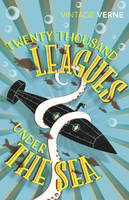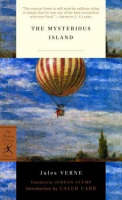Few wagers in literature can compare with that of Phileas Fogg, and his bet to fellow reform club members that he could travel around the world in just 80 days. Fogg's 20,000 pound bet (half of his fortune and £2,221,600 in today's money) begins on Wednesday 2 October 1872.
Around the World in Eighty Days
At 8:45pm, Fogg boards his first train with his recently appointed man servant Passepartout (the very mathematically exacting Fogg was compelled to sack his previous man servant on discovering his shaving water was 2 degrees cooler than stipulated). Thus begins an adventure by train, boat and elephant around the globe, amid kidnappings, storms, Sioux attacks, and Inspector Fix's ill-informed assertion that Fogg has just robbed the bank of England.
This epic adventure takes place during a fascinating period in history, with the recent opening of the Suez Canal, the first American Trans-continental railway, and the linking of India's railways. It was these events that gave Verne the idea for his beloved novel: "I have a great number of scientific odds and ends in my head. It was thus that, when, one day in a Paris café, I read in the Siècle that a man could travel around the world in 80 days, it immediately struck me that I could profit by a difference of meridian and make my traveller gain or lose a day in his journey".
Published serially, the final instalment of Around the World in 80 Days (or Le Tour du Monde en Quatre-Vingts Jours, in its original French), was released on December 21st itself to coincide with big day. So convincing was Verne's storytelling that many readers believed the wager was indeed taking place and duly placed their bets. Fogg's adventure inspired some real life copycats too - with Nellie Bly (1890) giving it a go for the New York World (meeting Verne himself along the way), and aviator Wiley Post (1933) nailing the journey in just eight days.
The legacy of this infamous bet doesn’t just end there. Around the World in 80 Days, along with other classic Verne novels, have inspired scientists for generations. Belin (inventor of the Belinograph which hugely contributed to the invention of television) claimed that Verne had heavily influenced his work; adventurers such as Brazza, Nansen and Philippe d'Orleans all said Verne lead them on their path; and even the United States Navy saw fit to name the world's first nuclear powered submarine in his honour ‘Nautilus’ (of 20000 Leagues Under the Sea fame). Despite all this, and the fact that Verne arguably began two genres of writing (science fiction and travel writing), he remained a modest, unassuming man all his life.
It may seem astonishing then that such an influential man was no expert himself in the field of science and technology. Verne was a stock broker at the Paris Stock exchange, a very good one by all accounts , but by night and early morning he pursued his true passion, writing. Verne painstakingly did his research, with the result that the technology described in his novels is remarkably detailed and his predictions for our modern technological advances, often startlingly accurate (think of the electric submarine in 20,000 leagues under the sea, and rocket ships carrying passengers in ‘From the Earth to the Moon’). Curiously again, Verne wasn’t the world's most adventurous man, indulging in small sailing trips on his steam yacht from time to time, but little more of note. Verne reflected he was moved to write stories of adventure after an attempt to run away to sea when he was a small boy was foiled by his father. After receiving a sound thrashing, Verne determined that 'after this I shall only travel in my imagination'. When the distinguished author was in his fifties, he was shot in the leg by his nephew (who suffered a mental health condition), perhaps enough adventure for anyone's lifetime. Verne recovered but walked with a limp for the rest of his life.
In addition to Vernes intriguing themes of science and travel, Around the World in 80 Days boasts a stylish narrative and vivid characters. Who could forget eccentric Englishman Phileas Fogg, with his meticulous habits and sheer unflappability? The exacting Fogg's journey to the reform club is wonderfully described by Verne in one passage:
"Phileas Fogg, having shut the door of his house at half-past eleven, and having put his right foot before his left five hundred and seventy-five times, and his left foot before his right five hundred and seventy-six times, reached the Reform Club”
And amid a natural disaster when all hope appears lost: "As for Phileas Fogg, it seemed just as if the typhoon were a part of his programme”. Has Fogg a heart? This grows with his adventure, or as Fogg himself puts it: "Sometimes, when I have the time.”
Rereading this beloved classic, it isn’t hard to see why Jules Verne remains one of the most translated authors in the world with his writing appearing in approximately 150 languages (as many as the Bard himself and second only to Agatha Christie) .
If you’d sooner not commemorate this literary event by betting your fortune (wise) against completing a journey around the world, why not commemorate this day by reading this epic adventure and reliving its heart stopping climax or even hire the classic movie starring David Niven, and Cantinflas . Does Fogg win his ambitious bet? I can only quote his own words: “A true Englishman doesn't joke when he is talking about so serious a thing as a wager,”








Add a comment to: Phileas Fogg’s Wager Day